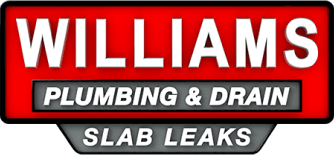Few things disrupt a home’s comfort faster than the sudden intrusion of a foul, unmistakable odor. Is it in the bathroom, basement, laundry room, or kitchen? Wherever it may be, that smell often means sewer gas or wastewater issues are brewing beneath the surface. Left unchecked, these odors can cause more than discomfort — they may signal potential plumbing hazards, health risks, or even structural damage.
Below, we’ll explore the common causes of sewer smells, the steps you can take to eliminate them, how to protect your home from recurring issues, and when to contact a sewer professional for help.
Understanding the Source of the Smell
That sharp, egg-like odor usually comes from hydrogen sulfide, a byproduct of decomposing organic matter in your wastewater system. Alongside it, you might also detect methane, another component of sewer gas. Together, they point to issues like dried-out traps, leaks, faulty plumbing fixtures, or ventilation problems.
In the basement, problems can be traced to a malfunctioning sump pump, poor seals around floor drains, or even a damaged sewer line. In the bathroom, a clogged toilet trap, blocked ventilation pipe, or buildup in the shower drain can allow odors to escape.
Fixing Dry or Damaged Traps
Your plumbing system relies on traps, U-shaped pipes that hold water, to block sewer gas from entering your home. When the water in a trap evaporates due to infrequent use or high humidity, the barrier disappears, allowing the smell to travel inside.
The fix can be simple. Run water in all fixtures weekly, including rarely used bathtubs, basement floor drains, or laundry sinks. If traps are cracked, corroded, or otherwise damaged, a professional inspection and repair may be needed to restore the seal and stop the odors.
Removing Buildup in Drains
Over time, drains collect soap scum, grease, hair, and food debris. These create the perfect environment for bacteria to grow, producing foul-smelling waste gases. While chemical cleaners can be harsh on pipes, a safer approach involves flushing the drain with a mixture of vinegar and baking soda, followed by a thorough rinse with hot water.
Avoid pouring cooking oil or fats down the drain since these solidify and trap other debris, making clogs worse. For stubborn issues, call a plumber. We use inspection cameras, hydro-jetting, or other drain cleaning technology.
Addressing Plumbing Leaks and Ventilation Issues
A leak in a pipe joint or valve can allow sewer gas to seep indoors. Beyond the odor, leaks increase the risk of mold, water damage, and even flood conditions. Prompt repairs, along with proper sealing of plumbing fixtures, will protect both your air quality and your home’s structure.
Blocked or damaged vent pipes are another frequent culprit. Ventilation keeps air moving through your wastewater lines and prevents backup and pressure changes that push odors indoors. A licensed plumber can clear obstructions like tree roots, organic matter buildup, or ice in the winter to restore airflow.
Preventing Odors in Basements and Laundry Rooms
Basements and laundry rooms often have multiple odor entry points, from floor drains to washing machine hoses. Ensure all drain seals are intact and keep your sump pump in good working order to handle excess water.
Regular maintenance of laundry drains, as well as inspecting laundry and utility sinks, can reduce the risk of gases escaping.
Health Risks of Sewer Gas
Exposure to sewer gas is more than unpleasant. It can impact your health in serious ways. Low-level exposure may cause headaches or nausea, while high concentrations of methane or natural gas increase the risk of dizziness or worse. Hydrogen sulfide can irritate the eyes, skin, and respiratory system.
When to Call a Professional
Some odor problems can be solved with DIY cleaning and home improvement efforts, but others demand professional tools and expertise. If the smell persists despite cleaning, or if you see signs of backup, wastewater seepage, or oil-like residue, it’s time to call for an inspection.
Plumbers can pinpoint the cause using inspection cameras and perform targeted repairs without much disruption to your floor, ceiling, and walls.
Take Action Before Odors Become Damage
The smell of sewage in your bathroom or basement is never just an inconvenience. It’s a warning sign from your home’s plumbing system. By acting quickly and clearing a clogged trap, restoring proper ventilation, or repairing a hidden leak, you can prevent serious damage, safeguard your health, and protect your investment.
If you’ve noticed persistent odors or suspect issues with your drains, fixtures, or ventilation, contact Williams Plumbing & Drain today. Our team will deliver expert diagnostics, effective repairs, and the peace of mind that comes from a fresh, safe, and fully functional home.
